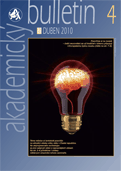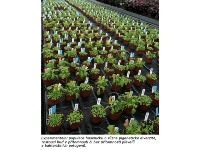Humanity is dependent on natural ecosystems as sources of food, but they also provide other essential services. The preservation of biological diversity is a fundamental challenge for contemporary environmental protection. Recent research has found that intraspecific diversity plays an equally vital role in the functioning and stability of ecosystems as interspecies diversity. Intraspecific diversity was until now always attributed to phenotypic and functional diversity of individuals, secured thanks to the variability of DNA. Nevertheless, the phenotype is controlled only by the base sequence of nucleotides in the DNA, but is also controlled by epigenetic variation.
Epigenetics can be characterized as a system that controls the expression of genes. Epigenetics thus allows inheritable programming of the phenotype without altering the DNA. Unlike changes to the sequence of nucleotide bases in DNA, epigenetic variability allows much more flexible intergenerational phenotypic variability, and most importantly this change can be actively controlled by the surrounding environment. It is therefore possible that the epigenetic diversity of populations and ecosystems that has already been demonstrated under natural conditions could play a similar role in the functioning of ecosystems as genetic and interspecific diversity do.
Researchers from the Institute of Botany in collaboration with the University of Bern in
Switzerland and the University Normale Supérieure in Paris have truly confirmed this theory on
experimental populations of the species Arabidopsis thaliana. Scientists thus for the first time
have demonstrated that epigenetic diverse populations have as much as 40 % higher production of
biomasses than epigenetic monocultures. The results of this research were published recently in a
new study issued in the prestigious journal Nature Communications (see the
abstract).
Researchers further discovered that epigenetic diversity significantly increases the
resistance of the population to bacterial infections and invasions of other plant species In this
study, epigenetic diversity had a very similar effect as the published effects of genetic or
interspecific diversities, because the results of the research show that the epigenetic diversity
of plant populations plays the same role as genetic or specific diversity. That naturally has many
fundamental consequences. Firstly, it will be necessary to reconsider previously published work
that did not check epigenetic diversity in their studies, and thus their results may be due to
genetic diversity, epigenetic diversity or both. Secondly, it will be necessary to incorporate
epigenetic diversity in basic ecological research, to determine its importance in natural
populations and to test its role across species. The conclusions of the research may find practical
applications such as the cultivation of crops when without modification of the genotype
epigenetically variable culture blends can be created with higher production and resistance to
pests and weeds.
Citation: Vít Latzel, Eric Allan, Amanda Bortolini Silveira, Vincent Colot, Markus Fischer,
Oliver Bossdorf: Epigenetic diversity increases the productivity and stability of plant
populations. Nature Communications 4:2875 doi: 10.1038/ncomms3875 (2013).
Internet link:
http://www.nature.com/ncomms/2013/131128/ncomms3875/full/ncomms3875.html
Prepared by: Institute of Botany of the ASCR and the Department of Media Communications of the
Head Office of the ASCR
28 Nov 2013








